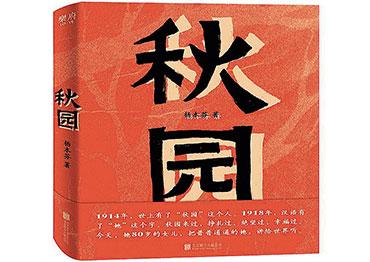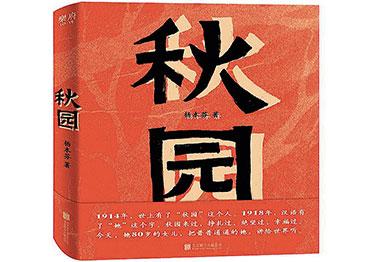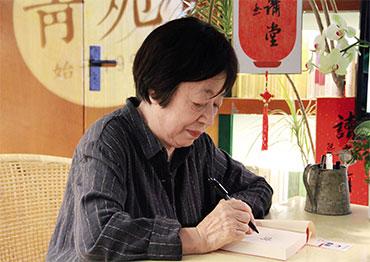There is extreme humility in Yang Benfen’s character.
During the interview, she was concerned whether her heavily accented Chinese was understandable. “Do you understand what I am saying? So sorry for my terrible [standard] Chinese,” Yang said repeatedly.
She feared her downbeat story would upset readers. “I feel incredibly sorry for letting readers read such a sad story. Perhaps people won’t be happy because of my writing,” she said.
She feels shy about being called a writer. In the afterword of Qiuyuan, daughter Zhang Hong, wrote: “She kept asking me ‘Don’t you think it’s a bit self-serving to call your mother a writer? I don’t think I’m qualified enough to be called a writer.”
Privately, Yang feels differently. “I often read my own writing. I compliment myself secretly. I think it’s pretty good,” she said. But she keeps it to herself. In public, her timidity returns.
Yang attributes her timidity to her hard life experiences. “I’ve always had bad luck,” Yang said in a mildly self-mocking tone.
Yang was born in 1940 in Xiangyin County, Hunan Province. Since Yang’s father was physically weak and could not do any hard labor, the family’s burdens rested on her mother.
As the eldest daughter, Yang had to help with the housework and look after her younger siblings. Unable to go to school, she learned how to read and write at home. She began attending school at 11. Thirsty for knowledge, she devoured every book she could and was always at the top of her class.
It was nearly six kilometers to school. Yang had to get up before dawn and walk alone on mountain trails. At night, she had to do embroidery by oil lamplight to earn money.
But she enjoyed those days. “I was extremely happy. Every day I walked alone on the mountains and kept telling myself, ‘how fortunate I am to get an education!’” Yang told NewsChina.
Her good fortune did not last long. After graduating from primary school at 13, Yang had to stop her studies and work for the family.
Several years later, when her brothers and sisters were old enough, Yang was able to continue her studies. At 17, she was admitted to the Institute of Industrial Technology of Yueyang, a vocational school in Yueyang, Hunan Province. She read any novel she could find.
Yang bought a flashlight, and while hiding under the covers read The Three Musketeers, Gone with the Wind, One Hundred Years of Solitude, and her favorite, Anna Karenina. For her, being a writer was the most admirable occupation in the world.
But misfortune fell again. Two months before graduation, Yang’s school was closed, although she does not say why. She neither got a diploma nor a job opportunity, so to find work, she went to Yichun, Jiangxi Province, where she was admitted to the Communist Workers School, a vocational school for workers and farmers. However, her education ceased one year after, as she was sent to a village in Panzhihua, Sichuan Province, to do forced labor due to her “problematic family background.” This was because her father had served the nationalist government.
She got married because her husband promised she could continue her schooling. But this was shattered when she had three children in quick succession.
The family lived in a small town in Yichun. In February 1972, she started work as a casual gas station attendant for a car transport company. She had to work hard without complaint to secure the job.
Reading was her only solace. At a time when books were like gold dust, it was harder to get any in a small town. If she heard someone had a book she had not read, she would do whatever she could to please them, sending the book owner gifts like embroidery or homemade desserts.
“I really can’t imagine life without books,” Yang said.
Yang is a natural storyteller. She remembers every plot and character, no matter how tiny, from every book she has read.
During winter nights in the late 1970s, Yang’s neighbors and young mechanics from the transport company would visit her home to listen to her tell stories. She recounted Tolstoy’s Anna Karenina, the 1883 Chinese martial arts novel The Tale of Loyal Heroes and Righteous Gallants, and Red Crag, a 1961 novel by Chinese writers Luo Guangbin and Yang Yiyan.

 Old Version
Old Version

